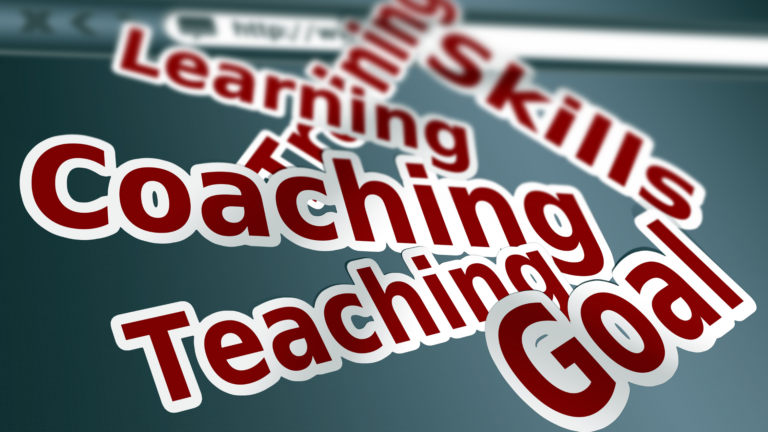Time management is a crucial skill that plays a significant role in the success and productivity of both teachers and students. In the fast-paced world of education, where there are countless tasks and responsibilities to juggle, having effective time management skills is essential. It allows teachers to efficiently plan lessons, grade assignments, and meet deadlines, while students can balance their academic workload, extracurricular activities, and personal commitments.
Understanding the importance of time management in education is the first step towards developing this skill. Time management helps teachers create a structured and organised classroom environment, where students can thrive academically and develop essential life skills. It also enables students to make the most of their time, ensuring that they can meet deadlines, complete assignments, and have time for self-care and personal growth.
For teachers, developing time management skills involves understanding the role it plays in their profession. Effective time management allows teachers to allocate their time wisely, ensuring that they can plan engaging lessons, provide timely feedback to students, and effectively collaborate with colleagues. Utilising tools and techniques such as prioritisation methods, task lists, and digital calendars can help teachers stay organised and maximize their productivity.
Similarly, students can greatly benefit from cultivating time management skills. Research has shown that students who effectively manage their time tend to perform better academically, experience less stress, and have a higher level of overall satisfaction with their school experience. Implementing strategies such as setting goals, breaking tasks into smaller manageable chunks, and utilizing planners and schedules can help students stay on track, complete assignments on time, and maintain a healthy work-life balance.
However, developing time management skills does not come without its challenges. Common obstacles such as procrastination, distractions, and the overwhelming feeling of having too much to do can hinder effective time management. Both teachers and students must identify and address these time wasters, implement strategies to balance multiple responsibilities and manage stress to avoid burnout.
Implementing time management techniques in the classroom can also enhance student engagement and productivity. Incorporating time management activities into lessons can help students develop essential organizational skills and learn to manage their time effectively. Furthermore, integrating time management lessons into the curriculum can provide students with the necessary tools and knowledge to succeed not only academically but also in their personal and professional lives.
In this blog post, we will explore various strategies and techniques for developing time management skills for both teachers and students. From understanding the importance of time management in education to overcoming common challenges and implementing effective techniques in the classroom, this blog post aims to provide valuable insights and practical tips to enhance productivity and success in the educational setting. Stay tuned for the upcoming sections, where we delve deeper into the world of time management and uncover strategies that can transform the way teachers and students approach their daily tasks and responsibilities.
Understanding the Importance of Time Management in Education
Effective time management is a critical aspect of success in the field of education. It is a skill that both teachers and students must possess to thrive academically and professionally. Understanding the importance of time management in education is the foundation for developing effective strategies and techniques that can enhance productivity and overall performance.
1.1 Enhancing Productivity:
– Time management allows teachers and students to make the most of their available time, optimising productivity and efficiency.
– Teachers can effectively plan their lessons, allocate time for grading, and accomplish administrative tasks, ensuring a smooth and organised classroom environment.
– Students can prioritise their assignments, allocate time for studying, and engage in extracurricular activities without compromising their academic progress.
1.2 Meeting Deadlines:
– Time management skills enable teachers and students to meet deadlines for assignments, projects, and other academic responsibilities.
– Teachers can effectively plan their instructional activities, ensuring that they cover the necessary curriculum within the allocated time frame.
– Students can complete their assignments and prepare for exams promptly, reducing stress and ensuring high-quality work.
1.3 Stress Reduction:
– Effective time management reduces stress levels for both teachers and students.
– Teachers can alleviate the pressure of meeting multiple deadlines and managing various responsibilities by implementing time management strategies.
– Students can avoid last-minute cramming and feel more in control of their academic workload, leading to reduced anxiety and improved mental well-being.
1.4 Improved Academic Performance:
– Time management is closely linked to academic success.
– Teachers who manage their time effectively can provide quality instruction, offer timely feedback, and create a conducive learning environment.
– Students who practice good time management skills can allocate sufficient study time, complete assignments on time, and perform better academically.
1.5 Transferable Life Skills:
– Time management skills acquired in an educational setting have long-lasting benefits beyond the classroom.
– Teachers can transfer their time management skills to other areas of their lives, such as personal commitments and professional development.
– Students who develop effective time management skills are better prepared for future academic pursuits, careers, and personal endeavours.
Understanding the significance of time management in education is essential for both teachers and students. It sets the stage for implementing strategies and techniques that can positively impact productivity, meet deadlines, reduce stress, improve academic performance, and cultivate valuable life skills. In the following sections, we will explore specific strategies tailored to teachers and students that can enhance their time management abilities and ultimately contribute to their success in the educational realm.
Developing Time Management Skills for Teachers
Effective time management is crucial for teachers to successfully navigate the demands of their profession. By developing time management skills, teachers can create a structured and organised classroom environment, effectively plan lessons, and efficiently manage their various responsibilities. This section will explore the role of time management in teaching, tools and techniques for teacher time management, and strategies for planning and prioritizing tasks.
1.1 The Role of Time Management in Teaching:
– Understanding how time management positively impacts teaching and student learning outcomes.
– Exploring the benefits of effective time management, such as increased productivity, improved organization, and reduced stress.
– Recognising the potential challenges and obstacles teachers may face in managing their time effectively.
1.2 Tools and Techniques for Teacher Time Management:
– Exploring various tools and technologies that can aid in time management, such as digital calendars, task management apps, and online collaboration platforms.
– Discussing the benefits of using these tools and providing recommendations for their effective use.
– Highlighting time-saving techniques and strategies, such as batch processing, delegation, and setting realistic goals.
1.3 Strategies for Planning and Prioritizing Tasks:
– Understanding the importance of setting clear goals and objectives to guide time management efforts.
– Exploring different planning techniques, such as creating to-do lists, using time-blocking methods, and utilizing project management tools.
– Discuss strategies for prioritizing tasks based on urgency, importance, and alignment with instructional goals.
By developing time management skills, teachers can improve their efficiency, reduce stress, and create a positive learning environment for their students. The next section will focus on developing time management skills specifically for students, highlighting the impact of time management on their academic performance and providing effective strategies and tips for enhancing their time management abilities.
Developing Time Management Skills for Students
Developing time management skills is crucial for students to effectively manage their academic workload, balance extracurricular activities, and maintain a healthy work-life balance. This section will delve into the impact of time management on student performance, provide effective time management tips, and explore the use of planners and schedules to enhance student time management.
1.1 The Impact of Time Management on Student Performance:
– Understanding how effective time management positively influences academic success and overall student performance.
– Exploring the benefits of managing time efficiently, such as improved focus, reduced stress, and increased productivity.
– Examining the consequences of poor time management, such as missed deadlines, incomplete assignments, and decreased academic achievement.
1.2 Effective Time Management Tips for Students:
– Providing practical strategies and techniques for students to manage their time effectively.
– Discussing the importance of setting goals, establishing routines, and utilizing productivity tools.
– Exploring techniques for overcoming procrastination, managing distractions, and maintaining motivation.
1.3 Use of Planners and Schedules for Student Time Management:
– Highlighting the benefits of using planners and schedules to organise and prioritise tasks.
– Discussing different types of planners and scheduling methods, such as daily, weekly, and monthly planners, as well as digital calendars.
– Providing tips on how students can effectively utilize planners and schedules to allocate time for studying, assignments, extracurricular activities, and personal downtime.
By developing effective time management skills, students can enhance their academic performance, reduce stress, and maintain a healthy balance between their academic responsibilities and personal life. The next section will address common challenges faced in managing time and provide strategies for overcoming them, ensuring students can effectively implement their time management skills.
Overcoming Common Time Management Challenges
Time management can be challenging for both teachers and students due to various factors such as distractions, competing priorities, and the overwhelming feeling of having too much to do. This section will focus on identifying and addressing common time management challenges, strategies for balancing multiple responsibilities, and tips for managing stress and avoiding burnout.
2.1 Identifying and Addressing Time Wasters:
– Recognizing common time-wasting activities and behaviours that hinder effective time management.
– Providing strategies for minimizing or eliminating distractions, such as setting boundaries, managing technology use, and creating a conducive workspace.
– Discussing the importance of self-awareness and self-discipline in overcoming time-wasting habits.
2.2 Strategies for Balancing Multiple Responsibilities:
– Recognizing the demands and responsibilities that teachers and students face outside of their academic commitments.
– Exploring techniques for prioritizing tasks, such as using the Eisenhower Matrix or the ABC method.
– Discuss strategies for effectively balancing professional, academic, and personal responsibilities, including delegation, time allocation, and seeking support when needed.
2.3 Tips for Managing Stress and Avoiding Burnout:
– Understanding the impact of stress on time management and overall well-being.
– Providing techniques for managing stress, such as practising self-care, setting boundaries, and adopting stress-reducing activities like mindfulness or exercise.
– Discussing the importance of maintaining a healthy work-life balance and recognizing the signs of burnout.
By addressing common time management challenges, teachers and students can overcome obstacles that hinder their productivity and success. Implementing strategies to minimize time wasters, balance multiple responsibilities, and manage stress effectively can lead to improved time management skills and overall well-being. The next section will focus on implementing time management techniques in the classroom, highlighting activities and lessons that can engage students and foster consistent time management habits.
Implementing Time Management Techniques in the Classroom
Implementing time management techniques in the classroom can greatly enhance student engagement, productivity, and overall success. This section will explore the use of time management activities to engage students, incorporating time management lessons into the curriculum, and encouraging consistent time management habits.
3.1 Using Time Management Activities to Engage Students:
– Discuss various interactive and hands-on activities that can help students develop time management skills.
– Providing examples of time management games, group projects, and simulations that promote effective time allocation and task prioritization.
– Highlighting the benefits of incorporating these activities into the classroom, such as improved teamwork, decision-making, and time awareness.
3.2 Incorporating Time Management Lessons into the Curriculum:
– Discussing the importance of explicitly teaching time management skills as part of the curriculum.
– Exploring ways to integrate time management lessons into different subject areas, such as incorporating planning and organisation into project-based learning or time allocation in mathematics.
– Providing resources and strategies for teachers to develop lesson plans that focus on time management skills.
3.3 Encouraging Consistent Time Management Habits:
– Discussing the importance of instilling consistent time management habits in students.
– Exploring strategies to create a classroom environment that promotes time management, such as establishing routines, providing clear expectations, and modelling effective time management behaviours.
– Providing tips for teachers to offer ongoing support and guidance to students as they develop and practice time management skills.
By implementing time management techniques in the classroom, teachers can empower students to take control of their time, prioritize tasks effectively, and develop lifelong organizational skills. Engaging students through interactive activities, integrating time management lessons into the curriculum, and fostering consistent time management habits can set students up for success not only academically but also in their future endeavours.
In conclusion, developing time management skills is essential for both teachers and students. By understanding the importance of time management in education, implementing effective strategies, and overcoming common challenges, educators and learners can enhance productivity, reduce stress, and achieve their goals. Whether it is through utilizing tools and techniques, utilizing planners and schedules, or incorporating time management activities into the classroom, mastering time management skills can have a profound impact on the educational journey.
Related posts:
 Addressing Behaviour through a Trauma-Informed Lens: Strategies for Cultivating Positive Classroom Culture
Addressing Behaviour through a Trauma-Informed Lens: Strategies for Cultivating Positive Classroom Culture
 Understanding Trauma-Informed Education: Building Resilience in the Classroom
Understanding Trauma-Informed Education: Building Resilience in the Classroom
 Building Trust and Connection: The Role of Relationships in Trauma-Informed Teaching
Building Trust and Connection: The Role of Relationships in Trauma-Informed Teaching
 Enhancing Working Memory: Tools and Activities for Improved Student Learning
Enhancing Working Memory: Tools and Activities for Improved Student Learning




